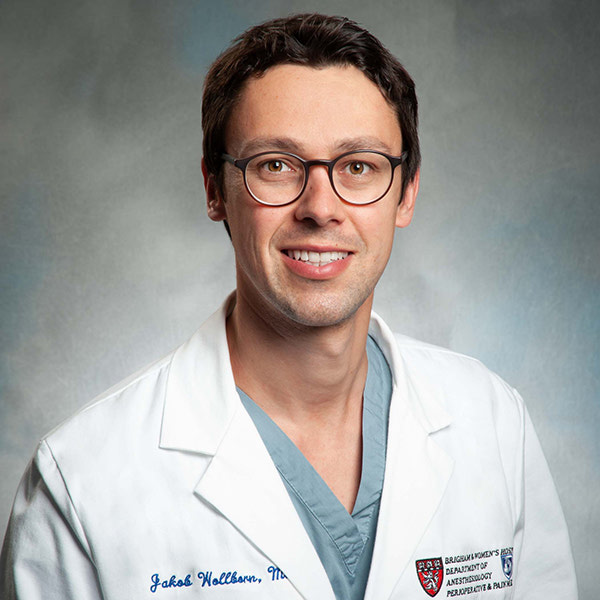
Atrial fibrillation, or AFib, is one of the most common complications following cardiac surgery. It affects up to 40% of patients, depending on the procedure. During the early recovery period, patients are continuously monitored in the ICU using telemetry and intermittent ECGs to detect irregular heart rhythms. But once patients are discharged, that monitoring stops, and clinicians have little visibility into patients’ recovery.
That gap can carry clinical consequences. AFib increases the risk of stroke and often leads to the use of blood thinners, which can cause bleeding complications. To better understand what might be missed after discharge, researchers at Brigham and Women’s Hospital and Mass General Brigham launched a study using wearable ECG patches to continuously monitor patients at home after hospital discharge.
Early findings suggest that more AFib events are occurring after discharge than clinicians have traditionally recognized. The results raise new questions about how long patients remain vulnerable and how real-time data could help clinicians take action before complications escalate.
What We Miss After Discharge
When the heart enters an abnormal rhythm, patients face a higher risk of stroke, extended hospital stays, and the possible need for blood thinners. While these medications reduce the risk of clotting, they also increase the risk of gastrointestinal bleeding and hemorrhagic stroke. In the days following cardiac surgery, inflammation and physiological stress can trigger AFib, particularly in patients undergoing valve replacements, bypass procedures, or other high-risk operations.
These arrhythmias often occur during hospitalization, but they don’t necessarily stop there. Most patients are discharged within five to six days. That leaves a critical period of recovery unobserved, even though the physiological stressors that trigger AFib may still be present. Without continuous data, delayed or transient arrhythmias can go undetected, limiting the ability to assess risk or intervene appropriately.
Although post-operative AFib is well recognized, less is known about how long it persists or how often it begins after discharge. Without that data, clinicians may underestimate ongoing risk, miss chances to intervene earlier, and lose insights that could shape safer long-term management.
Studying AFib Risk After Discharge
While AFib is a well-recognized complication during the immediate postoperative period, most available data focuses only on what occurs during the hospital stay. Our study was designed to extend monitoring into the days after discharge to better understand how long patients remain at risk and what might be missed once traditional surveillance ends.
To date, the research team has enrolled more than 100 patients who underwent open-heart surgery with cardiopulmonary bypass. Each participant received a Vivalink wearable ECG patch at discharge and wore it for up to 14 days. The device continuously recorded and transmitted heart rhythm data, enabling researchers to identify arrhythmias that may have gone undetected during hospitalization.
Revealing What Traditional Monitoring Overlooks
Preliminary analysis suggests that AFib may occur more frequently after discharge than previously recognized. While existing studies indicate that 20-40% of cardiac surgery patients develop AFib within the first week, 42% of the study’s cohort experienced AFib during hospitalization, and 27% were found to have AFib while wearing the patch after discharge.
Nearly a quarter of those with AFib detected on the patch had no documented arrhythmia during their hospital stay. In most of these cases, AFib went undiagnosed until the three-month follow-up. Many of these episodes were intermittent events that lasted less than five minutes, which may have been too short to capture through routine monitoring or standard ECGs.
The research team is now working to determine the clinical significance of these post-discharge events. Ongoing analysis will explore whether late-onset AFib is linked to long-term outcomes, increased risk of complications, or the need for follow-up interventions. The team also plans to analyze secondary data, such as patient movement patterns captured by the wearable devices, to assess how mobility may influence or reflect recovery trajectories.
A Broader Role for Remote Monitoring in Surgical Care
By identifying arrhythmias that occur after discharge, continuous monitoring could enable earlier intervention, triggering follow-up, diagnostic testing, or treatment adjustments before complications arise. Remote monitoring also creates opportunities for new models of post-operative care, where clinicians can track recovery outside the hospital and respond to changes in real time.
While the study centers on post-cardiac surgery patients, the potential applications extend further. Continuous, noninvasive monitoring could support care across a range of settings, including replacing bulky inpatient telemetry and informing preoperative risk assessment. In anesthesiology and surgery, access to timely physiologic data could help make care more responsive, individualized, and efficient.
As we continue this work, our goal is to better understand AFib after surgery and examine how remote monitoring can provide clinicians with clearer visibility into the recovery period. When thoughtfully integrated, this technology has the potential to fill gaps in postoperative oversight and ultimately improve outcomes for patients recovering from major cardiac procedures.
About Jakob Wollborn, M.D., M.P.H
Jakob Wollborn, M.D., M.P.H., is a cardiothoracic anesthesiologist and intensivist at Brigham and Women’s Hospital and serves as an Assistant Professor of Anaesthesia at Harvard Medical School. Clinically, Dr. Wollborn leads the complex perioperative care of cardiac patients, while his research seeks to improve perioperative outcomes after cardiac surgery and critical illness, remote patient monitoring, and microcirculation with recent publications in Intensive Care Medicine, JAMA Open, Journal of Cardiothoracic and Vascular Anesthesia, amongst others. He holds a Master’s in Public Health from Harvard T.H. Chan School, where he balanced excellence in public health with advancing clinical expertise.


